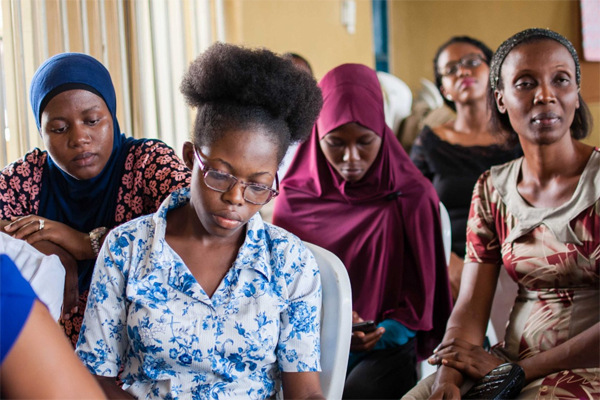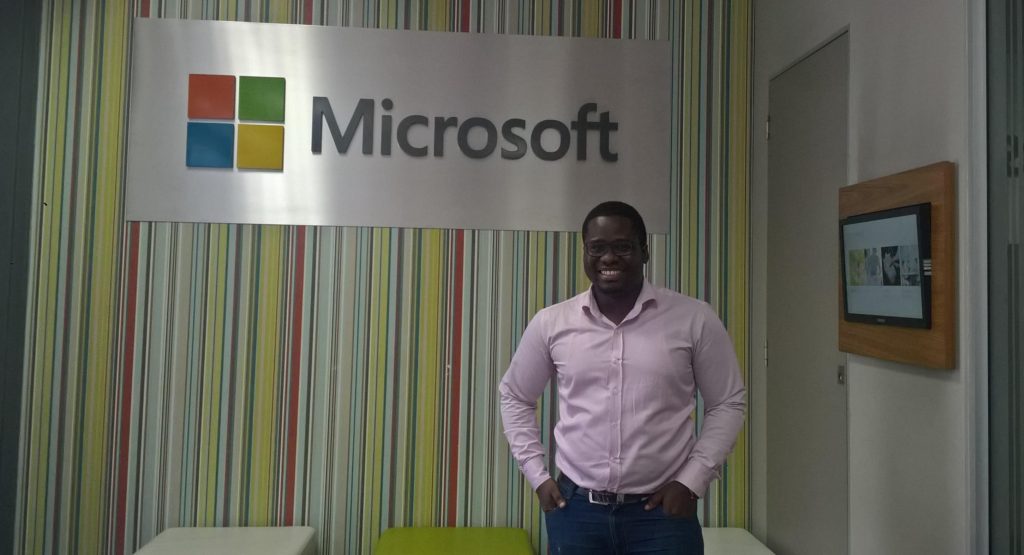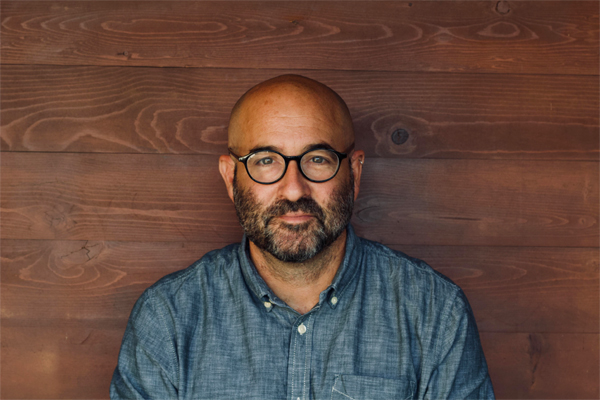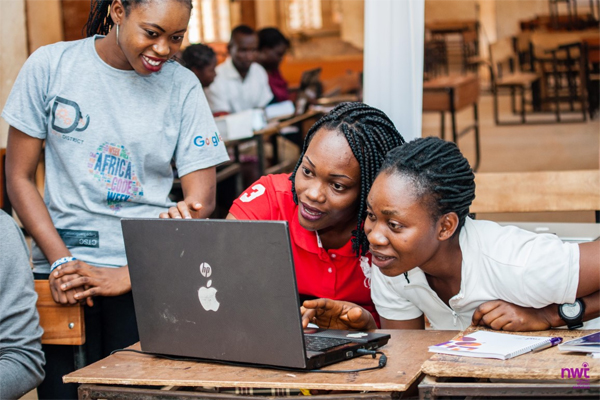The African Diversity and Inclusion Center‘s (ADIC) Founder and Executive Director, Ipolito T Mubiru, explores the role of technology in accelerating gender equality in Africa, particularly in the hard-to-reach places.
This year marks the 46th annual International Women’s Day since its creation by the United Nations back in 1975. In 1977, the United Nations General Assembly invited member states to proclaim 8 March as the UN Day for women’s rights and world peace. That’s 46 years of progress, change, diversity of thought and inclusion to celebrate. Women worldwide can leverage information and communication technologies (ICT) for personal security, better access to education and jobs, financial inclusion or to access basic healthcare information. But benefits such as these rely on women having meaningful access to ICT; which can be facilitated or prevented by several factors, related to affordability, relevant content, skills and security.
The UN’s five Sustainable Development Goals (SDG) aim to achieve gender equality and empower all women and girls; and calls for enhanced use of enabling technology – ICT in particular to help achieve that. This will be key in closing the gender gap; but the McKinsey Global Institute estimates that it will take around 142 years for Africa to close this gap.
CLOSING INEQUALITY GAPS
To help turn commitment into action, ADIC in partnership with media company Fair Play Talks, hosted a symposium on 5 March 2021, focusing on how technology can be leveraged to accelerate gender equality in hard-to-reach places of Africa.
Technology serves as a key driver of change; and opens new avenues to address the world’s most complex challenges. It is not only at the forefront of every socio-economic and political endeavour; but it is the pillar on which all endeavours are made in the 21st century. Technology is changing the nature of work and challenging traditional production patterns. It is also changing the skills that employers seek; how people work and the terms on which they work. Most importantly, if technology is leveraged to the maximum it can be an influential driver to close key gaps between men and women; even in hard-to-reach places like Africa.

Through innovation, investment and development of products and services, the private sector, particularly big tech companies, can play an important role in advancing gender equality; and improve the lives of women through leveraging technology as a force for good. While women make up more than 50% of the world’s population, they also represent 70% of the world’s poor. According to research, women reinvest 80% of every dollar made back into her family; meaning that practical support for the economic empowerment of women is a crucial step towards eradicating poverty and promoting prosperity.
TECH FOR SOCIAL GOOD
Our symposium explored how technology could be leveraged to accelerate gender equality in Africa. This includes big tech corporations, civil society leaders and the donor/funding community; especially those whose philanthropy work aims advance gender equality through technological innovation. For example, Magnus Johnson, Microsoft’s Sub-Saharan Africa Philanthropies Lead, explained how Microsoft is helping women to advance their knowledge in technology; but also working alongside them to further their careers. He highlighted how Microsoft is working on a project in partnership with Tech4Dev where 5,000,000 women will be trained in entrepreneurship skills; especially tech-preneurship across different countries in Africa. This is very ambitious, but achievable.

The beauty of technology is that it can accommodate mammoth numbers and achieve success like never before. Microsoft is committed to leveraging technology through tech for social good; and reaching out to empower civil society leaders to create more impact. Through these different avenues, Microsoft has been one of the few tech companies to utilise its position as a leading tech company in Africa to advance gender equality.
ADDRESSING INEQUALITIES
With unbelievable access to technology, big tech companies are positioned to create more impact not only within their circles; but also in societies across the world through creating meaningful change. Civil society and the donor community also has an important role to play to address gender inequalities through philanthropy in Africa. Lior Ipp, Executive Director at The Roddenberry Foundation (TRF), a philanthropy organisation funding different areas to address inequalities within society, also noted this.
From funding technology startsup to addressing the challenges of Covid-19, RTF has helped to make an impact in the remotest of all places on earth; and created equality in more ways than we can all imagine thanks to its grants that require no application forms, no deadlines and no restrictions. The fact that RTF grants funds directly to the African civil society organisations means that the people at the bottom of the pyramid – those who most need it – finally receive the full benefits; unlike many charitable organisations/donors where funds go into funding western organisation with huge overheads, with only a smaller percentage of the original donations going to where it’s most needed.

HOW TECH CAN ACCELERATE GENDER EQUALITY
In conclusion, here are some of the ways that technology can help to accelerate gender equality in Africa:
Opportunity
Technology is a great enabler; creating unprecedented opportunities for female entrepreneurs to enter global markets for the first time. ICT provides opportunities to boost small business growth by establishing an international level-playing field that enables all businesses, regardless of size, location or sector, to compete on an equal footing in global markets. Programmes through partnerships can realise the opportunities ICT can offer, by boosting skills as Microsoft is doing; equipping women with digital devices and providing training that helps women teach their respective communities how to make the most of these tools. This event highlighted the importance of multi-stakeholder collaboration in these efforts and showcased business initiatives that are using ICT to support women’s participation in the workforce and aid inclusion.
Capacity
ICT can give women access to basic needs such as healthcare and education. The private sector plays a pivotal role in investing in community-oriented training; deploying infrastructure and delivering a wide range of ICT services to meet these needs.
Understanding
Women are currently less likely than men to use or own digital technologies, with larger gaps among youth and those over 45 years old. ICT improves efficiency, enhances coordination and improves the quality of information gathered and shared for development planning. However, if African countries are to effectively leverage ICT to empower women, governments need to be well-informed about how the ICT ecosystem works in practice, as well as the barriers and the solutions.
It is a wonderful moment for all of us as we strive to leverage technology to accelerate gender equality across the continent. Together, as partners for sustainable development, and moving forward, we shall realise this much-needed gender equality and other forms of equalities the world needs today.
NEXT EVENT
The theme for next month’s event is, Addressing disparities in health service and accelerating HIV&AIDS care for marginalised communities across Africa amid the pandemic. At this event, we will seek to uncover strategies and technologies that leaders can use to realise health equities in any given setting; while addressing health inequities amidst the current tough pandemic climate.
We will also learn how the inclusion of the most marginalised communities in health services can benefit communities and business as a whole in Africa. For more information or to register for the event, contact me on imubiru@africandicenter.org.

ABOUT THE AUTHOR
Ipolito T Mubiru is Founder & Executive Director of the African Diversity and Inclusion Center (ADIC), which promotes diversity, equity and inclusion (DE&I) across the African continent. Mubiru founded ADIC, a pan-African organisation, to foster DE&I for women, youthsand minority groups of people across the region. Click here to read our interview with Mubiru to find out more about the work he does at ADIC.







































